“Jiraiya and the Magic Frog” provides the inspiration for three of Naruto’s characters: Tsunade, Jiraiya, and Orochimaru. In this story, Jiraiya doesn’t become a sage until the end, but he summons giant frogs and matches the rough character from Naruto. As in Naruto, the Jiraiyo of folklore chases Tsunade. Both struggle against Orochimaru. Many of Orochimaru’s powers trace to this story. Anime taps many of Japan’s folktales for characters and inspiration. As you read this story, you’ll see many other similarities with Naruto.
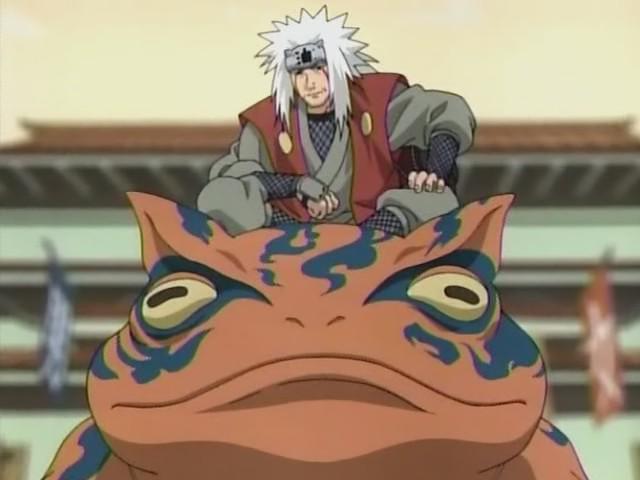
At that time Echigo was infested with robbers. One day the faithful retainer of Jiraiya being attacked, made resistance, and was slain by the robbers. Jiraiya now left alone in the world went out from Echigo and led a wandering life in several provinces.
All this time he was consumed with the desire to revive the name of his father, and restore the fortunes of his family. Being exceedingly brave, and an expert swordsman, he became chief of a band of robbers and plundered many wealthy merchants, and in a short time he was rich in men, arms and booty. He was accustomed to disguise himself, and go in person into the houses and presence of men of wealth, and thus learn all about their gates and guards, where they slept, and in what rooms their treasures were stored, so that success was easy.
Hearing of an old man who lived in Shinano, he started to rob him, and for this purpose put on the disguise of a pilgrim. Shinano is a very high table-land, full of mountains, and the snow lies deep in winter. A great snow storm coming on, Jiraiya took refuge in a humble house by the way. Entering, he found a very beautiful woman, who treated him with great kindness. This, however, did not change the robber’s nature. At midnight, when all was still, he unsheathed his sword, and going noiselessly to her room, he found the lady absorbed in reading.
Lifting his sword, he was about to strike at her neck, when, in a flash, her body changed into that of a very old man, who seized the heavy steel blade and broke it in pieces as though it were a stick. Then he tossed the bits of steel away, and thus spoke to Jiraiya, who stood amazed but fearless:
“I am a man named Senso Dojin, and I have lived in these mountains many hundred years, though my true body is that of a huge frog. I can easily put you to death but I have another purpose. So I shall pardon you and teach you magic instead.”
Then the youth bowed his head to the floor, poured out his thanks to the old man and begged to be received as his pupil.
Remaining with the old man of the mountain for several weeks, Jiraiya learned all the arts of the mountain spirits; how to cause a storm of wind and rain, to make a deluge, and to control the elements at will.
He also learned how to govern the frogs, and at his bidding they assumed gigantic size, so that on their backs he could stand up and cross rivers and carry enormous loads.
When the old man had finished instructing him he said “Henceforth cease from robbing, or in any way injuring the poor. Take from the wicked rich, and those who acquire money dishonestly, but help the needy and the suffering.” Thus speaking, the old man turned into a huge frog and hopped away.
What this old mountain spirit bade him do, was just what Jiraiya wished to accomplish. He set out on his journey with a light heart. “I can now make the storm and the waters obey me, and all the frogs are at my command; but alas! the magic of the frog cannot control that of the serpent. I shall beware of his poison.”
From that time forth the oppressed poor people rejoiced many a time as the avaricious merchants and extortionate money lenders lost their treasures. For when a poor farmer, whose crops failed, could not pay his rent or loan on the date promised, these hard-hearted money lenders would turn him out of his house, seize his beds and mats and rice-tub, and even the shrine and images on the god-shelf, to sell them at auction for a trifle, to their minions, who resold them at a high price for the money-lender, who thus got a double benefit. Whenever a miser was robbed, the people said, “The young thunder has struck,” and then they were glad, knowing that it was Jiraiya, (Young Thunder.) In this manner his name soon grew to be the poor people’s watchword in those troublous times.
Yet Jiraiya was always ready to help the innocent and honest, even if they were rich. One day a merchant named Fukutaro was sentenced to death, though he was really not guilty. Jiraiya hearing of it, went to the magistrate and said that he himself was the very man who committed the robbery. So the man’s life was saved, and Jiraiya was hanged on a large oak tree. But during the night, his dead body changed into a bull-frog which hopped away out of sight, and off into the mountains of Shinano.
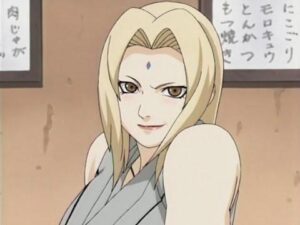
“Do not fear me. I have lived in this mountain many hundred years, but my real body is that of a snail. I will teach you the powers of magic, so that you can walk on the sea, or cross a river however swift and deep, as though it were dry land.”
Gladly the maiden took daily lessons of the old man, and soon was able to walk on the waters as on the mountain paths. One day the old man said, “I shall now leave you and resume my former shape. Use your power to destroy wicked robbers. Help those who defend the poor. I advise you to marry the celebrated man Jiraiya, and thus you will unite your powers.”
Thus saying, the old man shrivelled up into a snail and crawled away.
“I am glad,” said the maiden to herself, “for the magic of the snail can overcome that of the serpent. When Jiraiya, who has the magic of the frog, shall marry me, we can then destroy the son of the serpent, the robber named Dragon-coil (Orochimaru).”
By good fortune, Jiraiya met the maiden Tsunadé, and being charmed with her beauty, and knowing her power of magic, sent a messenger with presents to her parents, asking them to give him their daughter to wife. The parents agreed, and so the young and loving couple were married.
Hitherto when Jiraiya wished to cross a river he changed himself into a frog and swam across; or, he summoned a bull-frog before him, which increased in size until as large as an elephant. Then standing erect on his warty back, even though the wind blew his garments wildly, Jiraiya reached the opposite shore in safety. But now, with his wife’s powers, the two, without any delay, walked over as though the surface was a hard floor.
Soon after their marriage, war broke out in Japan between the two famous clans of Tsukikagé and Inukagé. To help them fight their battles, and capture the castles of their enemies, the Tsukikagé family besought the aid of Jiraiya, who agreed to serve them and carried their banner in his back. Their enemies, the Inukagé, then secured the services of Dragon-coil.

Collecting thousands of followers, he made great ravages in all parts of Japan, robbing and murdering good and bad, rich and poor alike. Loving war and destruction he joined his forces with the Inukagé family.
Now that the magic of the frog and snail was joined to the one army, and the magic of the serpent aided the other, the conflicts were bloody and terrible, and many men were slain on both sides.
On one occasion, after a hard fought battle, Jiraiya fled and took refuge in a monastery, with a few trusty vassals, to rest a short time. In this retreat a lovely princess named Tagoto was dwelling. She had fled from Orochimaru, who wished her for his bride. She hated to marry the offspring of a serpent, and hoped to escape him. She lived in fear of him continually. Orochimaru hearing at one time that both Jiraiya and the princess were at this place, changed himself into a serpent, and distilling a large mouthful of poisonous venom, crawled up to the ceiling in the room where Jiraiya and his wife were sleeping, and reaching a spot directly over them, poured the poisonous venom on the heads of his rivals. The fumes of the prison so stupefied Jiraiya’s followers, and even the monks, that Orochimaru, instantly changing himself to a man, profited by the opportunity to seize the princess Tagoto, and make off with her.
Gradually the faithful retainers awoke from their stupor to find their master and his beloved wife delirious, and near the point of death, and the princess gone.
“What can we do to restore our dear master to life?” This was the question each one asked of the others, as with sorrowful faces and weeping eyes they gazed at the pallid forms of their unconscious master and his consort. They called in the venerable abbot of the monastery to see if he could suggest what could be done.
“Alas!” said the aged priest, “there is no medicine in Japan to cure your lord’s disease, but in India there is an elixir which is a sure antidote. If we could get that, the master would recover.”
“Alas! alas!” and a chorus of groans showed that all hope had fled, for the mountain in India, where the elixir was made, lay five thousand miles from Japan.
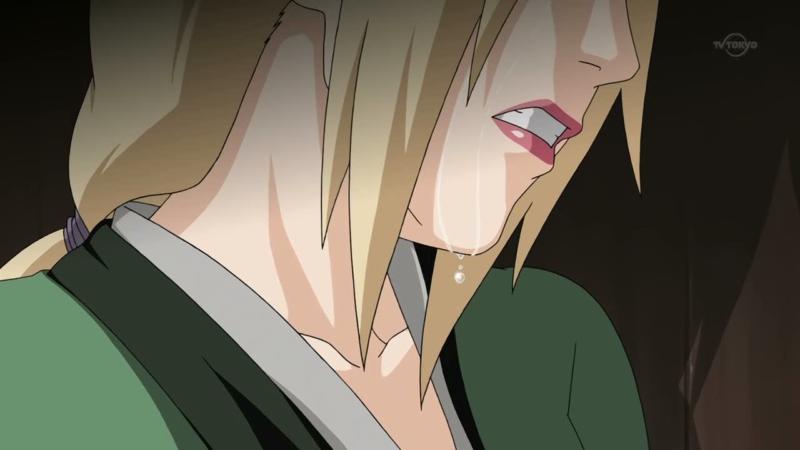
“How long can our lord live,” asked the youth.
“He will be dead in thirty hours,” answered the abbot, with a sigh.
“I’ll go and procure the medicine, and if our master is still living when I come back, he will get well.”
Now Rikimatsu had learned magic and sorcery from the Tengus, or long-nosed elves of the mountains, and could fly high in the air with incredible swiftness. Speaking a few words of incantation, he put on the wings of a Tengu, mounted a white cloud and rode on the east wind to India, bought the elixir of the mountain spirits, and returned to Japan in one day and a night.
On the first touch of the elixir on the sick man’s face he drew a deep breath, perspiration glistened on his forehead, and in a few moments more he sat up.
Jiraiya and his wife both got well, and the war broke out again. In a great battle Dragon-coil was killed and the princess rescued. For his prowess and aid Jiraiya was made daimio of Idzu.
Being now weary of war and the hardships of active life, Jiraiya was glad to settle down to tranquil life in the castle and rear his family in peace. He spent the remainder of his days in reading the books of the sages, in composing verses, in admiring the flowers, the moon and the landscape, and occasionally going out hawking or fishing. There, amid his children and children’s children, he finished his days in peace.
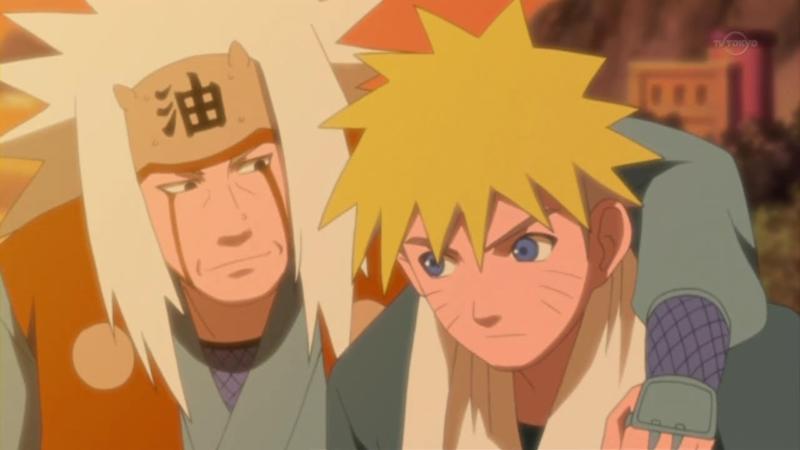
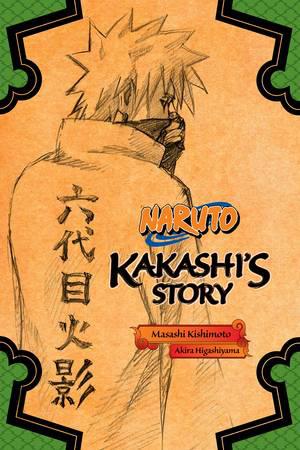
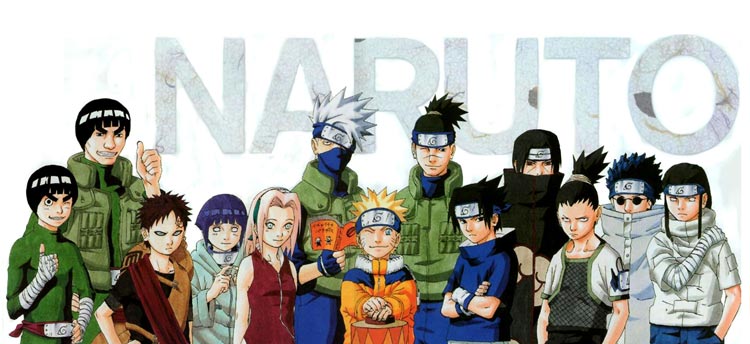
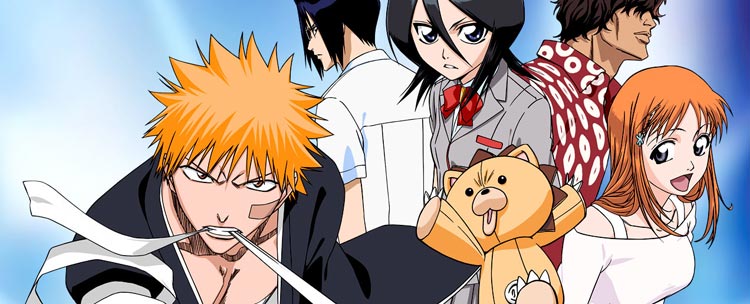
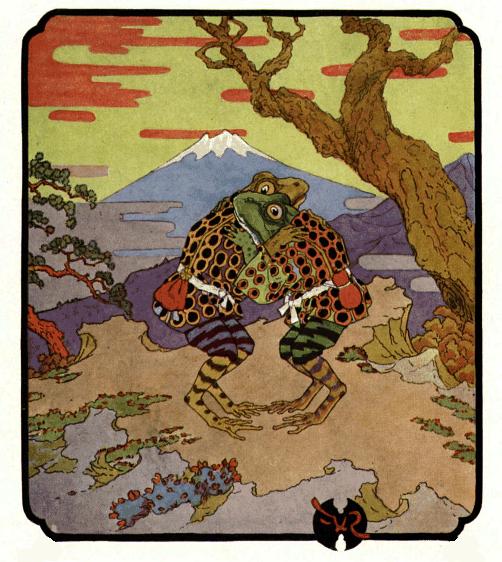
why did the creator choose frogs as characters please ?
Frogs have an association with boundary-worlds. They live in rice paddies on the boundary between civilization and the natural world. As amphibians, frogs have the ability to live on land and in water, another boundary-world. Traditionally, boundaries and the creatures that live in them were thought to have magic powers.
Good read! Was a nice tale. Though it is apparently written for the mere purpose of entertaining the readers, it definitely did great in serving as inspiration for creating the character concepts and names for Masashi Kishimoto’s creation — The Legendary Sanins.
Although Kishimoto adopted some few of story’s character concepts and may seem to lack originality through these imitations, in my opinion he still did a greater job by modifying some of their personalities to make them more interesting. Like for instance, the original Jiraiya’s character may seem a lot gloomier being a hardened criminal compared to Kishimoto’s version which is a more cheerful Jiraiya version. And he further improved the plot by adding some moral lessons to Jiraiya’s story.
Another engaging article btw. Thanks for sharing. Keep it up.
Traditional folktales provide a rich well for authors to dip into for ideas. It gives them something to start with so they can put their own spin on these old stories.